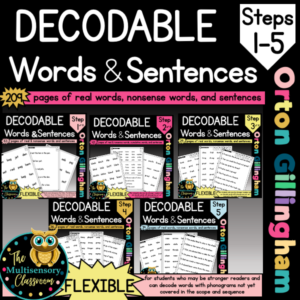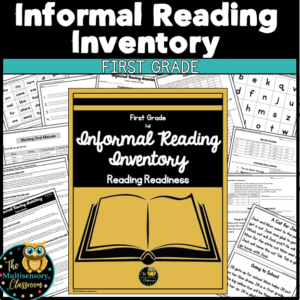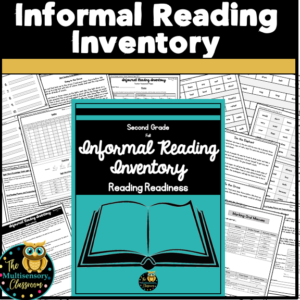Description
Phonological Awareness Quick Assessment: Informal Reading Inventory
Not sure if your child or student is ready to start learning to read? What about identifying early reading gaps but not sure where to start? According to the National Reading Panel, phonological awareness is the #1 predictor in early reading success. This phonological awareness assessment covers each pre-reading skill and will help you identify where instruction may be needed to get your child or student ready for reading.
This quick assessment takes less than 15 minutes to administer and will help you identify those reading gaps that need focused instruction.
Check out the preview to see what’s inside.
******************************************************************************
The following tasks are assessed in the Phonological Awareness: Quick Assessment Informal Reading Inventory:
- Word Awareness: separating phrases or sentences into words
- Rhyming: identifying and producing rhyming words
- Alliteration: detecting and categorizing words that begin with the same sound
- Syllabication Blending: blending word parts (syllables) into a complete word
- Syllabication Segmenting: separating words into parts (syllables)
- Onsets and Rimes Blending: blending the initial consonant in a word (onset) with the vowel and consonants that follow it (rime)
- Onsets and Rimes Segmenting: separating a one-syllable word into two parts (part 1- onset, part 2- rime)
- Phoneme Isolation (beginning sounds): recognizing the first sound within a word
- Phoneme Isolation (middle sounds): recognizing the middle sound within a word
- Phoneme Isolation (final sounds): recognizing the last sound within a word
- Phoneme Blending: reading sound units together as a word
- Phoneme Segmenting: separating words apart as sound units
- Phoneme Manipulation (adding phonemes): adding a sound (phoneme) to a word and identifying the new word
- Phoneme Manipulation (deleting phonemes): deleting a sound from a word and identifying the new word
- Phoneme Manipulation (substituting phonemes): substituting one sound for another and identifying the new word
******************************************************************************
The Multisensory Classroom: What are we about?
We create Orton Gillingham-based resources so classroom teachers, small-group interventionists, tutors, and homeschooling teachers can have peace of mind knowing they are using research-based strategies proven to work for beginning and struggling readers. The Orton Gillingham method is a language-based, multisensory, structured, and flexible program geared to meet the specific needs of students with reading difficulties.
We would greatly appreciate your feedback on this product. If you have any questions or issues, please email us at themultisensoryclassroom@gmail.com.







